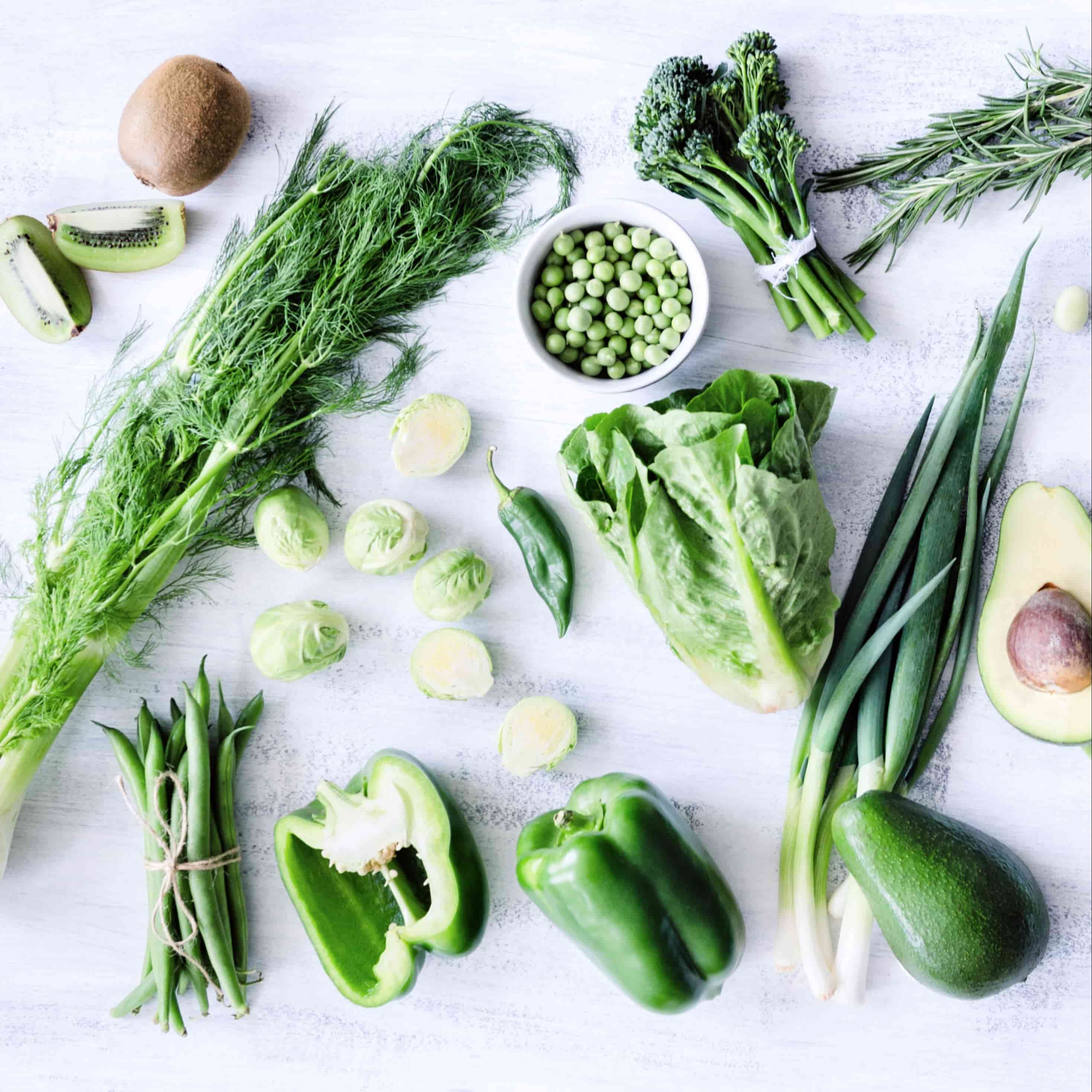lifestyle
The Best Vitamins and Supplements for Vegetarians: A Simple Guide
On This Page

See what science recommends for supplementing a plant-based diet. Learn the supplements that vegetarians should consider taking to avoid vitamin deficiencies.
If you have made the decision to be a vegetarian, you may be passionate about the environment, animal welfare, and your health. The amount of nutritional advice available for vegetarians can be overwhelming. We've created a simple outline of the best vitamins and supplements for a vegetarian or vegan diet. Continue reading to better understand the potential risks and limitations of vegetarian diets, and learn which vitamins and minerals may be harder for vegetarians to get through food alone. If you are committed to a vegetarian or vegan lifestyle long-term, then a personalized supplement plan may help you achieve your health goals.
Which vitamins may be low or missing from vegetarian and vegan diets?
Any vitamin has the possibility of being low in any diet. When omitting animal based products it may be a bit more challenging to get the recommended amount of Vitamin B12, choline, and vitamin D. Choline, B12 and Vitamin D are especially important for vegetarians to be familiar with because they are not found naturally in large quantities in plant-based foods, except those that are fortified.
Vitamin B12
Vitamin B12 is also known as cobalamin but there are more active forms of B12 called methylcobalamin, adenosylcobalamin, and hydroxocobalamin. Vitamin B12 is often thought of as a mood-boosting supplement. Like the other B vitamins, it is crucial for many critical processes. It is responsible for making new red blood cells, cell metabolism and DNA synthesis, as well as supporting brain function. While soy products and some nutritional yeasts contain B12, it is generally found in animal products. Some plant based food sources include fermented soy (think tempeh.)) products, nori, certain dried mushrooms (think shiitake and white button), and some nutritional yeasts. The amount of B12 present in these foods really varies depending on the way they were grown, cultivated, harvested, or dehydrated.
A 2003 study from the American Journal of Clinical Nutrition revealed B12 deficiency in 92% of vegans who did not take supplements. The same study found that 77% of vegetarians who consumed milk and/or eggs, but did not supplement, were deficient in vitamin B12. Of the omnivores who participated in the same study, just 11% were deficient in vitamin B12.
While the study was small, it reveals the prevalence of vitamin B12 deficiency among vegetarians and vegans. It is a strong sign that you should consider supplementing with vitamin B12 if eggs, fish and dairy are not a part of your diet.
Vitamin D for Vegetarians and Vegans
Vitamin D is important for many important functions, supporting the regulation of hormones, maintaining immune function, and supporting calcium absorption for bone health. If your climate and lifestyle allow you to spend a lot of time in the sun, then you may be getting enough vitamin D. However, the likelihood is that you are not getting the recommended amount of vitamin D. A study published by the Archives of Internal Medicine in 2009 estimated that 77% of US teens and adults are deficient in vitamin D.
Vegetarians have far fewer options for foods that contain vitamin D. Outside of dairy, fish, or eggs, vegetarians must rely on fortified grains and cereals as their primary food sources of vitamin D.
If you are concerned that you may not be getting enough vitamin D from food or exposure to the sun, consider taking vitamin D supplements. Be sure to look for vitamin D3, rather than D2. A 2012 study published by the American Journal of Clinical Nutrition indicates that vitamin D3 is more effective at raising the blood levels of vitamin D. Vitamin D3 has become more popular in supplement form, but many foods are still fortified with vitamin D2.
Get your minerals: calcium, zinc, and iron
Minerals can be easy to obtain on a vegetarian diet, especially if you love to pile vegetables on your plate. Daily doses of leafy greens like spinach, chard, kale, and seaweeds can help you meet your mineral needs. But if you do not have the variety of greens in your diet, mineral supplements can help bridge potential nutrient gaps. Calcium and zinc are the two main minerals every vegetarian needs to be aware of.
Calcium
Calcium is a mineral that depends on vitamin D to be properly absorbed. Calcium is particularly important to maintain healthy bones throughout your life. Even if you are an avid eater-of-greens, you should consider calcium supplementation. This is especially true if you drink a lot of coffee or green tea, as caffeine has been shown to interfere with calcium absorption.
The best foods for vegetarians that contain calcium include dairy, turnips, and leafy greens.
Zinc
Your body uses zinc, another essential mineral, for supporting immune function and cell metabolism. The cells of your entire body depend on zinc to replicate, regulate, differentiate, and proliferate. As a component of more than 300 active enzymes, zinc plays a role in basically everything that cells do. Zinc works with copper in the body so it is very important to maintain adequate levels of both minerals. This is why Care/of formulated zinc with copper to maintain balanced mineral levels.
The best foods for vegetarians that contain zinc include nuts, seeds, beans, and dairy.
Iron
Iron is an essential mineral that helps red blood cells transport oxygen and nutrients to the body's cells. Heme iron comes from animal sources, and non-heme iron is found in plants.
Vegetarians can get non-heme iron from a diet rich in vegetables. However, non-heme iron may not be as readily absorbed by the body. A routine blood test can reveal if you’re getting enough iron. If your blood levels of iron are low, then supplementing can help. Keep in mind that vitamin C can also improve your absorption of non-heme iron.
Supplementing with iron should only be done for those with low levels or those who do not get enough from their diet. Getting too much iron can also be dangerous, so do not supplement with iron unless you have spoken with your doctor.
The best time to take iron is in between meals for optimal absorption. If you tend to have a sensitive stomach you may want to have your iron supplement with a small amount of food.
The best foods for vegans that contain iron include beans, grains, nuts and seeds, fortified cereals, and leafy greens. Lacto-ovotarians may also consume dairy and egg yolks.
Other considerations: omega-3s
Omega-3 fatty acids are also widely studied for their benefits to vegetarians. Vegetarians are shown to be potentially low in these essential fatty acids. One popular and potent source of omega-3s is fish oil. Fortunately for those vegetarians that avoid fish altogether, there are plant based, vegan friendly sources of omega-3s.
Flax seeds, chia seeds, hemp seeds, olive oil, and walnuts are all rich sources of omega-3 fats. Algae oil is a vegan-friendly source of DHA and EPA. Algae actually makes the DHA and EPA that continues up the food chain to shellfish and fish, which is what makes fish so rich in omega-3 fatty acids.
The average American diet contains between ten and 20 times more omega-6 fatty acids than omega-3s. Though you should consume more omega-3 than omega-6 fats, the ideal ratio should be anywhere from 3-5:1 (omega 6:omega 3). Generally, increasing omega-3s may lead to supporting better health. A simple way to achieve this is to increase your use of healthy oils like olive oil, avocado oil, and incorporate healthy nuts and seeds in your diet.
The three forms of omega-3s fatty acids
Omega-3 fatty acids are necessary for a variety of biological functions. They are primarily known for their benefits that support maintaining a healthy heart. There are three main kinds of omega-3 fatty acids ALA (Alpha-linolenic acid), EPA (eicosapentaenoic acid), and DHA (docosahexaenoic acid). Alpha-linolenic acid (ALA) is an essential nutrient, because the body cannot produce it. Luckily, this oil is in plants such as leafy greens, nuts, and seeds. The other important omega-3 fatty acids are eicosapentaenoic acid (EPA) and docosahexaenoic acid (DHA). EPA and DHA are commonly found in animal products. DHA is also found in high amounts in seaweed. The body can synthesize EPA and DHA from ALA, if it is available in large enough amounts. The enzyme responsible for converting these fatty acids in the body can be slow to convert so getting EPA/DHA straight from the diet as well is advisable to reach adequate levels.
Personalized nutrition tips for vegetarians
No two vegetarian diets are exactly alike. Every aspect of your lifestyle, not just your dietary preferences, can influence what supplements you should take. It’s important to be thoughtful about your daily nutrition, as vitamin deficiencies can have long-lasting effects.
You may want to consider consulting a physician to ensure you’re taking the right vitamins and supplements to complement your diet and lifestyle. For nutrients like vitamin D and iron, a blood test may be necessary.



